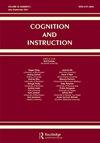学习走向公正、可持续和文化繁荣的未来
IF 2.6
1区 心理学
Q2 PSYCHOLOGY, EDUCATIONAL
引用次数: 40
摘要
这个问题特别及时,它呼吁该领域理解人类的学习和发展一直在移动——总是在迁移——即使当我们将民族国家的定居偏见和领土边界构建为规范,或者当我们在“不断地重新收集和记忆动态的社会和空间关系”时,我们将其记忆或重塑为“流动的我们”。正如本期的每一篇论文都以重要的概念和方法贡献深刻地阐明的那样,通过我们的运动和关系,通过我们认识和在一起的方式,通过我们创造性和负责任的分析、数据和叙述,地方总是在形成中。非运动是社会建构——人类和所有生命一样,都是流动的。不运动是一种历史积累的偏见,它服务于西方知识体系和社会中权力斗争的长期轨迹,即人类例外论和至高无上的本体论主张。流动、迁徙和地方——我们如何看待它们、如何创造它们、如何梦想它们以及如何讲述它们——都是重要的。本期的每篇论文都对学习和发展如何总是在运动中提供了独特的见解——尽管自启蒙运动以来,静坐主义的偏见一直主导着学习和人类认知和活动的构建——本期有助于创造新的学术途径。本文章由计算机程序翻译,如有差异,请以英文原文为准。
Learning on the Move Toward Just, Sustainable, and Culturally Thriving Futures
Abstract This issue is particularly timely, in its plea to the field to understand that human learning and development have always been on the move—always migrating—even if and when we construct sedentarist bias and territorial boundaries of the nation-state as normative or when we remember or remake as “ambulatory we’s” as we engage in “ongoing re-collection and re-membering of dynamic social and spatial relationships”. As each paper in the issue makes poignantly clear with important conceptual and methodological contributions, place is always in the making through our movements and relations, through our ways of coming to know and be together, and through our creative and accountable analysis, data, and narrative. Non-movements are social constructions—humans, like all life, are mobile. Non-movement is an historically accumulating bias that serves the long trajectory of powered struggles in western knowledge systems and societies ontological assertions of human exceptionalism and supremacy. Mobilities, migrations, and places—how we see them, how we make them, how we dream them and how we story them—are consequential. Each paper in this issue contributes unique insights into how learning and development are always on the move—even despite the sedentarist bias that has dominated learning and the construction of human knowing and activity since enlightenment—and this issue helps to create new pathways of scholarship.
求助全文
通过发布文献求助,成功后即可免费获取论文全文。
去求助
来源期刊

Cognition and Instruction
Multiple-
CiteScore
7.90
自引率
12.10%
发文量
22
期刊介绍:
Among education journals, Cognition and Instruction"s distinctive niche is rigorous study of foundational issues concerning the mental, socio-cultural, and mediational processes and conditions of learning and intellectual competence. For these purposes, both “cognition” and “instruction” must be interpreted broadly. The journal preferentially attends to the “how” of learning and intellectual practices. A balance of well-reasoned theory and careful and reflective empirical technique is typical.
 求助内容:
求助内容: 应助结果提醒方式:
应助结果提醒方式:


